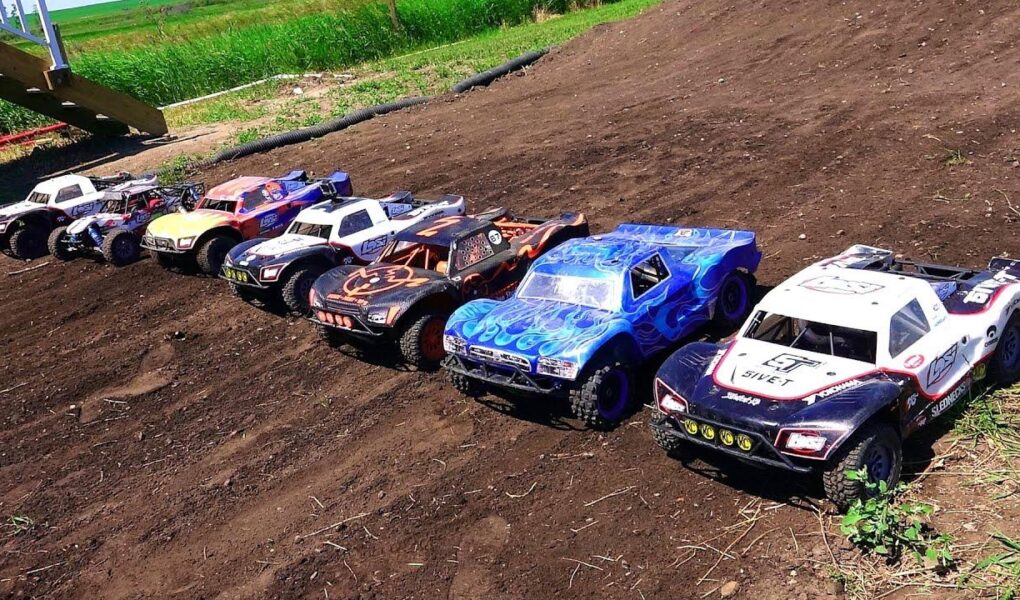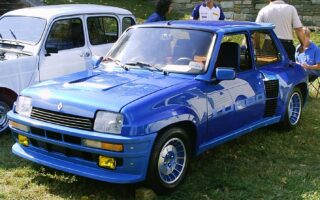Introduction: The Thrill of RC Car Racing
In a world where speed and precision meet in a miniature realm, remote-controlled (RC) car racing has emerged as a thrilling sport that transcends age and skill levels. From the whirring of tiny engines to the adrenaline-pumping moment when the starting signal blares, RC car racing captures the imagination of enthusiasts everywhere. Whether on meticulously crafted tracks or open fields, competitors navigate twists, turns, and jumps, mastering the art of control as they push their high-performance machines to the limit. This article delves into the vibrant world of RC car racing, exploring its history, the technology that drives it, and the passionate community that brings it to life. So buckle up as we take you on a lap through this exhilarating hobby that combines ingenuity, competition, and a love for all things automotive.
Table of Contents
- Exploring the Thrill of RC Car Racing Techniques
- Choosing the Right RC Car for Your Racing Style
- Mastering Track Conditions and Maximizing Performance
- Essential Upgrades for Competitive Edge in RC Racing
- Q&A
- In Retrospect
Exploring the Thrill of RC Car Racing Techniques
RC car racing is a vibrant blend of strategy and skill, where each maneuver can make a significant difference in performance. Mastering basic techniques such as cornering, acceleration, and braking will elevate your racing game. Experienced racers often recommend focusing on the following aspects for maximum control and speed:
- Throttle Control: Smooth and gradual acceleration helps maintain traction.
- Braking Techniques: Learn to brake early and effectively to corner faster.
- Race Line Selection: Understanding the ideal path around a track can save precious seconds.
- Body Language: Anticipating your car’s behavior involves reading the nuances of the terrain.
Beyond the basics, advanced techniques can turn a good racer into a great one. Consider practicing with varying terrain and conditions, as this will help you adapt and refine your skills. Training not just on speed but also on consistency is crucial for long races. To illustrate key strategies, here’s a simple comparison of the effects of different setups:
| Setup Type | Impact on Performance |
|---|---|
| Low Center of Gravity | Enhanced stability in turns, reduced rollover risk |
| Stiffer Suspension | Improved handling on smooth surfaces, less body roll |
| Soft Tires | Better grip on rough tracks, slower top speed |
| Hard Tires | Higher speed on smooth surfaces, reduced grip |
Choosing the Right RC Car for Your Racing Style
When selecting the perfect RC car, the first step is to understand your personal racing style, as it plays a significant role in your choice. Consider factors like speed, durability, and the type of terrain you’ll be racing on. Below are key attributes to evaluate:
- Speed: Look for cars with high RPM motors if you prefer fast-paced checkered flags.
- Durability: Choose robust models with reinforced bodies for challenging environments like off-road tracks.
- Handling: Select vehicles with adjustable suspensions for precision on curves.
- Battery Life: Ensure longer battery runtime for extended races on outdoor tracks.
Additionally, consider your level of expertise when making your choice. Beginner racers may benefit from user-friendly models that offer high stability and ease of maintenance, while experienced enthusiasts might lean toward customizable options that allow for upgrades. A glimpse at some popular categories can help:
| Category | Best Features |
|---|---|
| On-road Cars | Speed-focused, perfect for smooth tracks |
| Off-road Trucks | High suspension, durable for rough terrain |
| Drift Cars | Designed for tight corners, enhanced maneuverability |
| Monster Trucks | Massive tires, ideal for jumps and obstacles |
Mastering Track Conditions and Maximizing Performance
Understanding track conditions is essential for any serious RC car racer. Variations in weather, surface type, and track layout can drastically affect your vehicle’s performance. For instance, wet conditions can lead to reduced traction, necessitating different tire choices, while dry, dusty tracks may require advanced tuning of your suspension settings to maintain stability. By keeping a close eye on the weather forecast and adapting your pre-race preparations accordingly, you can give yourself a competitive advantage. Here are some key factors to consider:
- Surface Type: Asphalt, dirt, or carpet can all behave differently.
- Temperature: Hot weather can affect tire compound effectiveness.
- Time of Day: Morning dew or evening coolness can change grip levels.
Once you’ve assessed the track conditions, focus on fine-tuning your vehicle setup to maximize performance. Adjustments to your car’s weight distribution, shock settings, and gear ratios can make a world of difference in how your RC car handles the twists and turns of the track. Consider using a simple grid to evaluate your various tuning options, such as:
| Tuning Aspect | Adjustment Type | Effect |
|---|---|---|
| Suspension Damping | Stiffer Springs | Improved handling on rough surfaces |
| Weight Distribution | Move Battery Forward | Enhanced steering response |
| Tire Compound | Soft vs. Hard | Better grip or longer wear |
Essential Upgrades for Competitive Edge in RC Racing
To gain a competitive edge in RC racing, it’s crucial to invest in performance-enhancing upgrades for your vehicle. By focusing on the right modifications, you can significantly improve speed, handling, and stability. Some essential upgrades to consider include:
- High-Performance Motors: Upgrading to a more powerful motor can elevate your speed and torque, giving you an advantage on the track.
- Lightweight Batteries: Opt for lithium polymer (LiPo) batteries that provide longer run times and less weight, enhancing your car’s agility.
- Precision Shock Absorbers: Adjustable shocks can be tailored to your driving style and terrain, improving overall handling.
- Upgraded Tires: Choose tires that suit the specific conditions of your races, such as slicks for dry tracks or treads for off-road conditions.
Beyond performance, maintaining optimal control is equally vital. To further enhance your competitive strategy, consider the following tuning options:
| Tuning Aspect | Description |
|---|---|
| Suspension Tuning | Adjust ride height and stiffness to improve traction and cornering. |
| Gear Ratios | Experiment with different gear ratios to find a balance between acceleration and top speed. |
| Weight Distribution | Redistribute weight for better stability and cornering performance. |
Q&A
Q&A on RC Car Racing: Everything You Need to Know
Q: What is RC car racing?
A: RC car racing involves remote-controlled cars competing on various tracks, showcasing speed, agility, and strategy. Enthusiasts can participate in organized events, taking place both on-road and off-road, using cars specifically designed for racing.
Q: What types of RC cars are typically used in racing?
A: There are primarily two categories: electric and nitro. Electric RC cars are popular for beginners due to their ease of use and maintenance. They tend to be quieter and cleaner. Nitro cars, powered by nitromethane fuel, offer a thrilling power and the sound of roaring engines but require more intricate maintenance.
Q: How do I get started in RC car racing?
A: Beginners can start by purchasing an entry-level RC car and joining a local club or online community. Many clubs offer practice sessions and races suitable for novices. Attending events can provide valuable experience and knowledge regarding techniques and setups.
Q: What skills are essential for successful RC racing?
A: Successful RC racers need to master driving skills such as throttle control, cornering techniques, and racing lines. Additionally, knowledge of car tuning and setup is crucial, enabling racers to optimize their vehicle for various track conditions.
Q: How important is the track design in RC car racing?
A: Track design plays a pivotal role! Different layouts present unique challenges and opportunities. A well-designed track balances speed and technicality, testing racers’ skills while maintaining excitement for both participants and spectators.
Q: What should I look for in an RC car if I want to race?
A: Consider factors such as durability, speed, ease of upgrade, and availability of parts. Look for models specifically built for racing, featuring high-quality components, adjustable suspensions, and robust drivetrains to handle the rigors of competitive events.
Q: Are there any popular racing events or competitions I should know about?
A: Absolutely! Events such as the ROAR Nationals and the World Championship are notable. Many local hobby shops and clubs host regular races, allowing enthusiasts to compete at various levels, from casual to professional.
Q: Can I customize my RC car for better performance?
A: Yes, customization is a crucial part of the hobby! Upgrades like better tires, modified motors, improved suspension systems, and lightweight components can enhance performance. However, understanding how modifications affect driving behavior is vital.
Q: Is RC car racing suitable for all ages?
A: Yes, RC car racing is inclusive and can be enjoyed by people of all ages. Many families participate together, fostering a sense of community. That said, some events may have age restrictions or beginner classes to ensure fair competition.
Q: What are the costs associated with getting into RC car racing?
A: Costs can vary significantly depending on the type of car and level of competitiveness. Entry-level models start around $100, while high-performance racers can exceed $1,000. Additional expenses include accessories, upgrades, batteries, chargers, and racing fees.
Q: What’s the best way to learn more about RC car racing?
A: Engaging with the community is key! Join local clubs, participate in forums, watch instructional videos, and attend races. Networking with experienced racers can enhance your skills and deepen your understanding of this exhilarating hobby.
In Retrospect
As we draw the curtain on our exploration of the exhilarating world of RC car racing, it’s clear that this hobby is much more than just a thrilling pastime—it’s a vibrant community that brings enthusiasts together, fosters creativity, and sparks friendly competition. From the precision engineering that makes each vehicle unique to the adrenaline-fueled races that unfold on various terrains, RC car racing offers a myriad of experiences for both newcomers and seasoned pros alike.
Whether you’re drawn in by the technical challenges of tuning your car or the camaraderie found in the pits, there’s always something new to discover within this dynamic realm. So as you gear up for your next race or simply enjoy the artistry of hobbyist craftsmanship, remember that part of the excitement lies in the journey itself. Embrace the speed, relish the turns, and, most importantly, enjoy the ride—because in the world of RC car racing, every race is a new adventure waiting to unfold.



